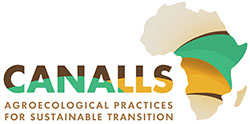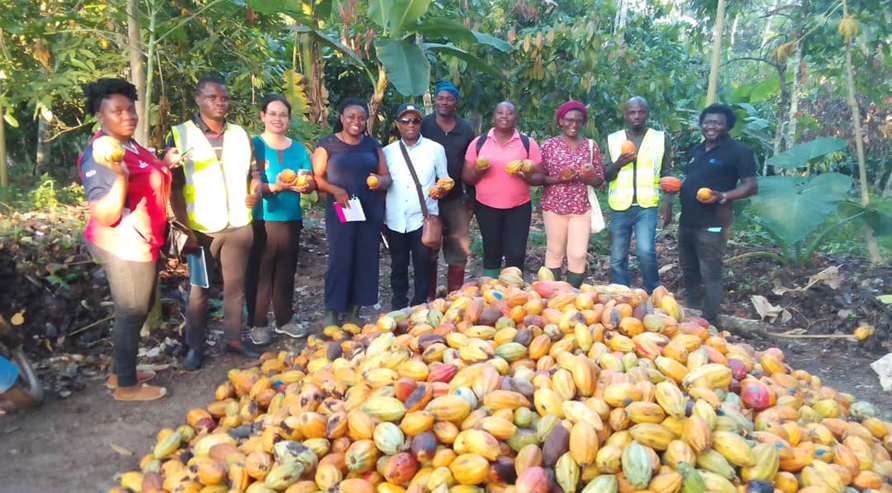Nestled in the forest-savannah transition zone of Cameroon, Ntui is a region where farming is the primary occupation. With nearly 110 rainy days per year, Ntui serves as a strategic agricultural hub, supporting a diverse range of crops, forestry, and animal husbandry activities. Remarkably, 76.7% of farmers are dedicated to cocoa production, the focal crop of the CANALLS Project in Ntui. Cocoa is cultivated in an agroforestry system, intentionally intercropped with valuable trees such as fruit, medicinal, and woody species.
Tackling Challenges with Agroecological Practices
The CANALLS Project has introduced a range of agroecological practices to address key farming challenges in the 8 cocoa farms of Ntui, including:
- Proper Shade Management, which reduces issues like pod rot, dieback, and mirid insect damage.
- The Use of Foliar Fertilizers to combat nutrient deficiencies in cocoa plants.
- Application of Biopesticides to control insects and brown rot.
Overcoming Field Challenges
Several challenges are related to the field experiments including climatic variations, that have significantly disrupted the farming calendar. Biopesticide availability is limited, as growing demand among farmers has created shortages in the market. Another issue is theft, which has increased due to the sharp rise in cocoa prices, from 1.83€/kg in 2022 to about 6.09€ in 2024.
The research team collaborates closely with farmers and local communities to align the data collection activities to farmer’s calendars to finally measure the effect of the on-farm experiments. Decision Support Tools are under development to aid planning and implementation. Additionally, training and capacity-building activities are ongoing.
Research is also underway to define strategies for the production and commercialization of biopesticides, while adaptation efforts continue to address challenges posed by climate change and theft.
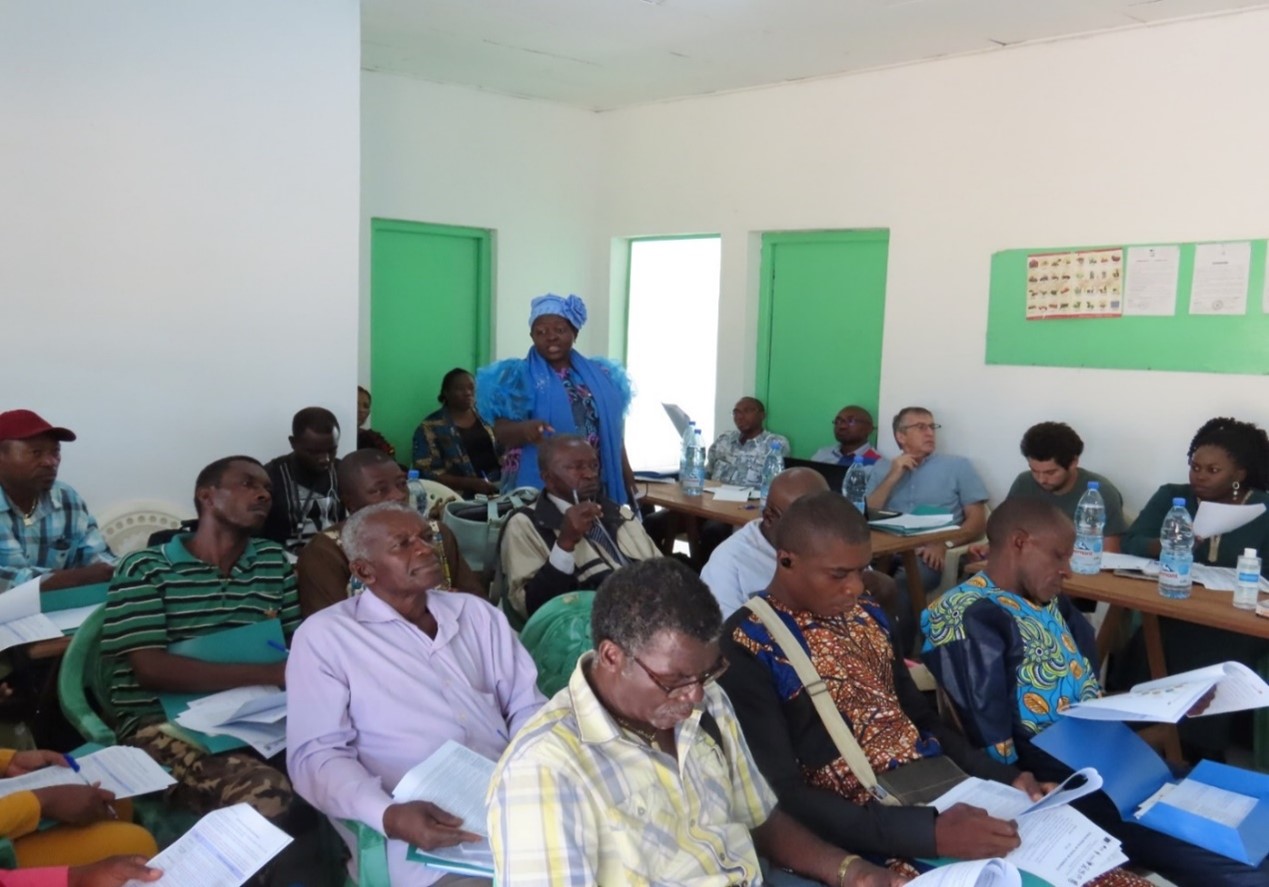
The Role of Key Stakeholders
Co-creation activities in the Ntui Agroecology Living Lab (ALL) involve multiple stakeholders:
- Researchers, who work to co-create solutions that are locally adapted, ecologically sustainable, and socially just.
- Farmers, who are central to the process, not only implement agroecological practices but also innovating, educating, stewarding the environment, and advocating for sustainable food systems.
- Advisors, who provide technical knowledge, guidance, and resources to support sustainable farming practices.
- Value Chain Actors, who connect sustainable farmers to markets, drive innovation, and advocate for supportive agroecology policies.
- State Agents promote widespread adoption of agroecological practices through policies, financial support, research, capacity building, and market development.
Stakeholders have taken part in multiple workshops, engaging in activities such as testing the Decision Support Tools, evaluating the potential adoption of foliar fertilization in the Ntui LL, and building the capacity of advisory service organizations using OCATI (Organizational Capacity Assessment Tool for Innovation).
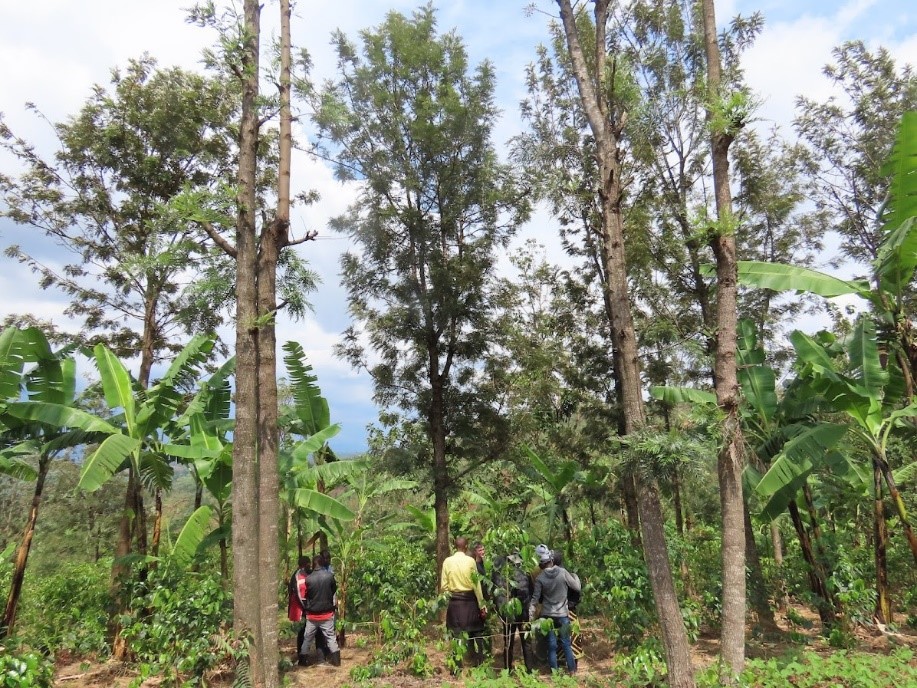
Promising Results and the Road Ahead
Stakeholders have already observed promising results in the experimental plots. During field visits in October, many noted improved production indicators, such as an increased number of cocoa pods per tree, denser foliage, and reduced pest and disease attacks in the experimental plots. One farmer proudly showcased a large harvest from his experimental plots, explaining that the yield was so impressive he had to hire additional workers to complete the harvest. Meanwhile, tools are being developed within the framework of the CANALLS Project to enhance market access and support agroecological products.
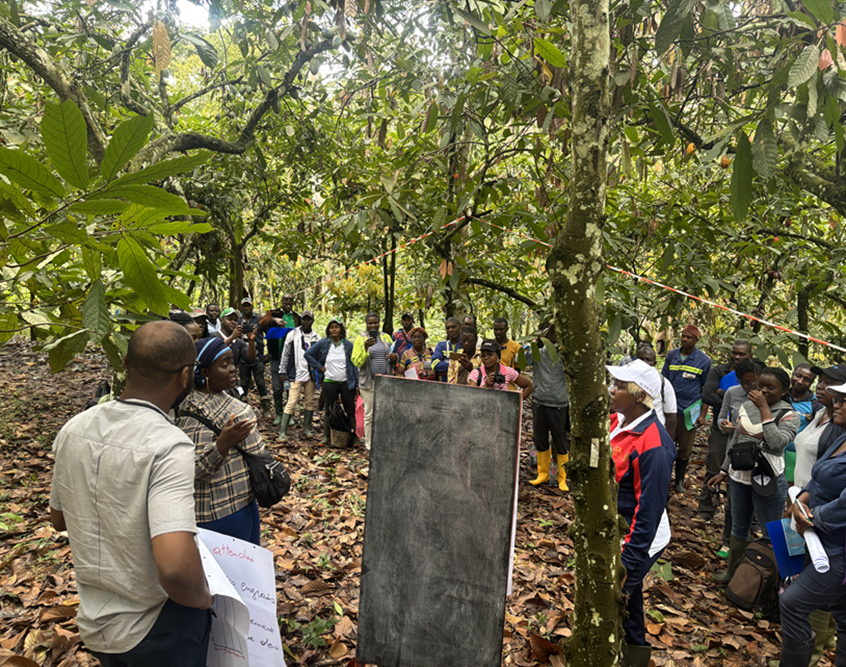
The first phase of trials is scheduled to conclude in February 2025, culminating in a co-creation workshop to design a scale-up strategy. Meanwhile, the team remains committed to advancing agroecological transitions.
